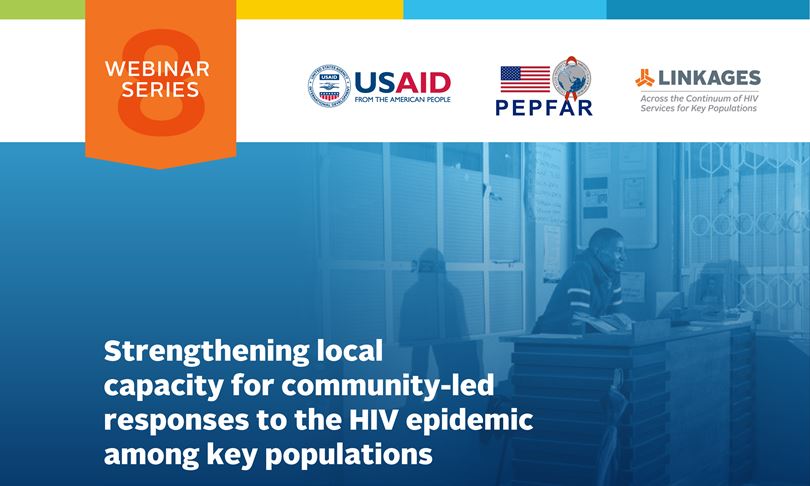Event Date
Webinar hosted by the LINKAGES project as part of the Key Populations: Evidence in action series.
To access the audio recording of the webinar, please click here.

On January 17th, the USAID– and PEPFAR-supported LINKAGES project hosted the eighth webinar in a webinar series entitled Key Populations: Evidence in Action. This webinar explored the importance of locally-driven capacity development efforts to ensuring an effective, efficient, relevant, and sustainable response to the HIV epidemic among key populations. Presenters shared the results of an assessment of capacity development activities implemented with key-population-serving civil society organizations (CSOs) in 12 countries, as well as highlight approaches to CSO capacity development that show promise for strengthening technical competencies and organizational performance in areas that are critical to improving HIV cascade outcomes among key populations.
Brian White, Pact/LINKAGES
Integrated locally-led capacity development delivers sustainable results
Caroline Francis, FHI 360/LINKAGES Indonesia
CSO capacity development strategies for improving first 90 performance in Jakarta’s Fast Track response
Peninah Mwangi, Bar Hostess Empowerment & Support Programme
Reflections on capacity development from Kenya’s first and oldest sex worker-led organizations
Margarita Elliot, FHI 360/LINKAGES Trinidad
Farah Cerson-Khodabaks, Suriname Men United
Prescriptive vs. organic: considerations for successful capacity development approaches with key-population-led CSOs in the Eastern Caribbean
Ebele Achor, Pact
Systems thinking: a holistic approach to capacity development
This webinar series is intended to be a platform for (1) sharing state-of-the-art knowledge, emerging evidence, and promising practices for achieving greater impact on the HIV epidemic through programs for key populations; (2) addressing pressing questions and controversial issues from the perspective of key population experts and community members; and (3) fostering dialogue among a broad set of partners working in key-population-focused research, programming, and advocacy.
The webinars will cover a range of topics, including introduction and scale-up of HIV self-testing and pre-exposure prophylaxis for key populations; cascade monitoring and data use; information and communication technology-based interventions; effective strategies for addressing violence, stigma, and discrimination; differentiated models for delivering antiretroviral therapy; and community empowerment.
This webinar series is open to anyone interested in key populations, including program implementers, researchers, policy-makers, advocates, funders, and community members.
